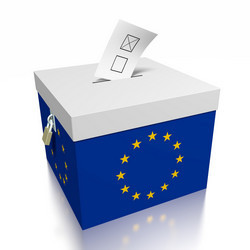Understanding Eurosceptic voters
There are systematic but unexplained attitudinal differences between mass publics in CEE and Western Europe countries. The EU-funded DEVBCEEC (Determinants of Eurosceptical voting behaviour in CEE countries and party responses) project focused on the premise that the success of the Eurosceptic label in CEE party politics may not be down to anti-EU sentiments alone. It may be a response to mainstream party convergence and the perception of widespread corruption among domestic elites. With this in mind, the project conducted a quantitative cross-national study to operationalise and empirically test these propositions with country-level and individual-level data from the region. The information generated provided an opportunity to observe sufficient variation in the type and strength of protest parties. Three countries were selected for the administration of a field survey: Hungary, Poland and Slovakia. Project members wrote detailed case studies for each country, providing basic information on general economic development, population demographics, institutional characteristics and development of the national party system. This enabled the identification of factors that potentially influence the behaviour of political parties. Development of a detailed timeline from the first free elections to the present day helped researchers take into account possible effects of specific events on the behaviour of political parties. Case study findings for each country make up the project's contribution to a Routledge Publishing Consortium book project with the working title 'Prospects on East Central Europe in the 21st Century'. A follow-up and add-on grant has been put together and submitted to an Austrian funding agency with a view to expanding the scope of the survey. The project's outcomes hold the promise of contributing to a better understanding of the success of Eurosceptic parties in an expanding EU. The analysis of the survey data on Euroscepticism and the impact of the financial crisis on voter behaviour is ongoing. Since 2013, there have been eight invited conference paper presentations on the subject, three of which took place in 2015. These include the Mid-West Political Science Association in Chicago (two papers) and the Council of European Studies Association Meeting in Paris. The conference papers are being converted into publishable papers two of which have been recently submitted for review.
Keywords
Eurosceptic, voting behaviour, party politics, corruption, political parties



